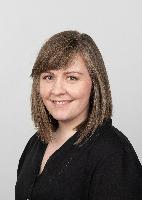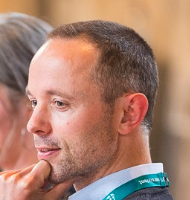Blog
Unless otherwise stated, content is shared under CC-BY-NC Licence
Sharing the Load: opportunities and options
The British Library is many things to many people. We are a place of research, a place of academic endeavour. We are a place of content, a dizzying array of content to marvel the minds and stimulate the senses. We are a place of exhibitions, of outreach, and of engagement. We are a place in the bustling heart of London, a place in the quiet countryside of Yorkshire, and a place online. We are a place of experts applying their expertise, of free Wi-Fi, and of reasonable coffee. We are a place of opportunity.
No End of History
The DPC’s ‘big data siren’ went off again last month when no less an authority than The Economist proclaimed, ‘The World’s Most Valuable Commodity is no Longer Oil But Data’. Normally a mournful foghorn warning business away from things it cannot (or will not) understand, The Economist has been quite the advocate for the digital economy over the years. But whatever your view on the ‘big data bubble’ there is little doubt about the place data occupies in the long history of the economy: indeed Jack Goody, Michael Clanchy and others would have you believe that control over resources was the principal reason for the invention of literacy in the first place and thus indirectly of data too. You might well conclude that The Economist is sounding a millennia-old headline, ‘how can emergent forms of literacy expand new economic activities’.
DPC maintains a ‘big data siren’ because the commentariat, left or right, seem seldom to consider what data is and whether it’s sustainable. It’s a significant weakness. To the right: if we build an economy on data, are we not building on sand? To the left: can something as fragile as data really induce the end of capitalism? What happens if we place digital preservation into that narrative?
Chicken and the Egg: Applying Digital Preservation Approaches to Social Media at DPASSH 2017
On the 14th June, DPASSH commences its second conference addressing the issues of digital preservation and the Arts, Social Sciences, and Humanities. I look forward to taking part and giving a paper on the application of some hard-earned best practice in digital preservation to social media research and heritage collections.
JP2 and colour profile limitations: a positive conclusion and findings
At the National Library of Scotland we were finding that some colour profiles in tif files were causing errors when we tried to convert them to JP2. So a couple of weeks ago I posted a question to the DPC-Discussion list asking members for their advice on JP2 files and colour profile support.
In the end we had some great help from Johan van der Knijff, from the Koninklijke Bibliotheek (KB) in the Netherlands, who has given me permission to use a distillation of our email exchange for the benefit of others who may run into the same problem (90% Johan – thanks Johan!) Here's a summary of our findings.
The acceptance speech I didn't give
Last week was an exciting one for us, and action packed, I’ve only really had time to pause and reflect on our achievements now.
For those of you who missed it, the DPC was presented with the IRMS Innovation of the Year Award for the fantastic Digital Preservation Handbook!
Turning up for the awards, I was secretly hoping we’d win one of the three – yes three – awards we’d been nominated for, but didn’t expect it at all. Over our pre-dinner glass of fizz I even asked William in jest whether he had prepared ‘a few words’ – ha ha ha! But, having settled in for a fancy dinner and an evening’s entertainment, we were in fact back on our feet straight away to accept the first award!
Integrating Research Data management and digital preservation systems at the University of Sheffield
Chris Loftus, Laura Peaurt, Jez Cope
The University Library at the University of Sheffield is taking the leading role in supporting the active management and curation of research data within the institution. We have recently implemented a research data catalogue and repository, ORDA (Online Research Data, powered by Figshare for institutions). We have also begun safeguarding library collections and key administrative assets of the University using ArchiveUs, the Sheffield brand of Rosetta, a digital preservation platform from Ex Libris. We are now working with figshare and Ex Libris to integrate both services to provide seamless preservation of published research data across the research lifecycle.
A Proud Agent of Change: What I Learned at the Information and Records Management Society (IRMS) Conference 2017
In case you missed the excitement on Twitter, the Information and Records Management Society (IRMS) held their annual conference this week in Glasgow (very thoughtful of them to bring this powerhouse international conference right to DPC’s doorstep)!
The Archivist’s Guide to KryoFlux: An Unofficial Manual
Guest bloggers Dorothy Waugh (Emory University) and Shira Peltzman (UCLA) introduce us to the KryoFlux
For those of us acquiring (or discovering) piles of floppy disks among our collections, the KryoFlux might just be a solution to our problems. Unlike modern USB floppy disk drives, this little floppy disk controller card can read and capture raw disk images of data stored using numerous disk encoding formats, including some that are especially early or unusual. What’s more, it handles media suffering from degradation or bitrot more effectively than most alternatives. Given these advantages, it’s not surprising that the KryoFlux is increasingly finding their way into archives and cultural heritage institutions.
Home of the Future: How we would like to be and where we are
And so the National Archives has been asked to blog about digital preservation.
I guess this will be aspirational at best as I think of how we would like to be and where we are. The National Archives has for the last while been endeavouring to develop a Public Service Records Management plan (PSRM) across the Irish civil service. The plan is intended to progress the drafting and distribution of guidelines and information notes on how best to manage administrative records and to begin to address the myriad questions we receive on a weekly basis about email management, digital archiving, file naming, version control etc.
Are we there yet? Understanding digital preservation costs and benefits.
Over the last 18 months I have been fortunate to have the opportunity to reflect, research, and synthesise with colleagues, what we have learnt about costs and benefits from digital curation and preservation. The results are now published in a cost-benefit advocacy toolkit released by the Consortium of European Social Science Data Archives (CESSDA).
It was a small project focussed on the needs of social science data archives but much of what it has done will be of interest to anyone involved in digital preservation and repositories.
So what have we learnt over recent years, and to borrow from the title of this blog, are we there yet?


















































































































































